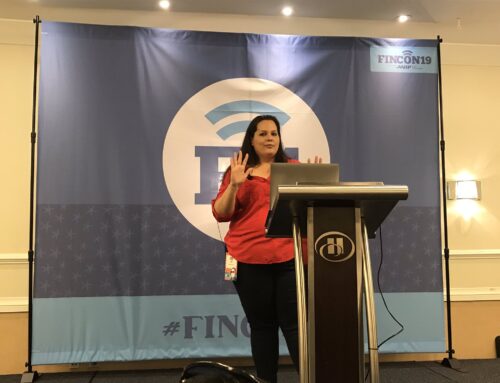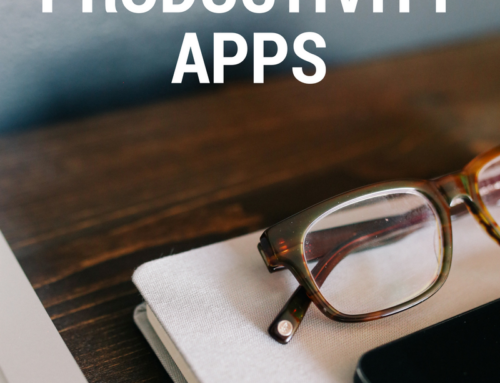I loved my job. I loved my work and my pay and my editor and my co-workers. When I got laid off on May 24, 2016, I did not love any of those things anymore.
I hated them because I was forced to leave a job that no one wanted me to leave. I hated them because I loved them, which made leaving hurt. No, I didn’t really hate them; I hated what had come of it. I hated leaving.
I knew it was coming but didn’t expect it. Both at the same time. This little startup wasn’t making it work and cuts were coming. I should have prepared myself better. I should’ve planned for my leave better. I should have known better.
I did not know better.
There are many things I wish I had done and didn’t, and there are some things I did and it worked out. Here’s how to survive a layoff.
Step one: prepare for it before it even happens
You can love your job more than you can love your partner, your pet, or your child, but that does not mean you are always guaranteed to keep it. The very best job does not mean it will last forever.
You can love your job and be great at your job and excel at your job and still prepare yourself in the event you don’t have that job anymore. Start with keeping tabs on the industry. If you love where you are, get to know leaders and peers at other places like yours. For me, I have friends in the journalism and media business all over. Keep up with networking events if you can spare the time. Have business cards with your non-work email and phone number so people can always get in touch with you.
Join a professional group. I’ve been in the Society of Professional Journalists for nearly a decade and if it weren’t for my friends in the industry and this group, I wouldn’t have that many people to reach out to.
Check your resume once a month. Make sure your skills are up to date. Check over the details of your past jobs. Unless it’s in perfect shape, don’t ignore this. Put it on your calendar like a reoccurring bill. If the time comes, you can start sending it out immediately. If you’ve got a network of friends in the industry, you can pester them to pass it along to hiring managers, too.
Never stop educating yourself. If your job offers any sort of certifications or continuing education, take advantage of them. Stack up on free webinars from any that offer them, like Poynter, SPJ, Media Bistro, and any other professional organizations.
Get a side gig. This should be in your industry but cool if it isn’t. For journalists, always be freelancing. Find one constant job (or as freelancers and contractors nicely call a retainer client) that you can do around your day job. Earning the extra income is nice, but so is having an in if anything happens to your full-time job.
So you got laid off: now what?
Well if you didn’t prepare, you’re in a bad spot. You’re probably ready to wallow. That’s fine. Take a day. Take two days. No more than a week if you’re really bent out of shape. I gave it three days. It’s OK to sulk and cry, but don’t let it get the best of you.
If you did prepare, you can also cry and sulk but you won’t have to scramble to get your shit together. Tap into your network. Don’t be afraid to use social media for resources. Put a call out on Facebook, Twitter, LinkedIn, and anything else that tells people you’re available and looking for work. Update your professional sites like LinkedIn and check your connections to see if anyone is available for helping you get work. Tell your professional network that you were laid off and would love help with getting leads. Don’t be afraid of the humility.
Freelance for anyone that will take you. Even if the pay is little, shit pay will lead to less shit pay. And eventually, good pay. Find freelance friends that will vouch for your good work. Get them to talk to their editors and put in a good word for you. If you’re trying out a new beat or vertical, having a friend’s word to support you is big. Also: don’t let them down. Overachieving has never been more important than proving to your industry friends you’re thankful for their help. Make sure you’re prepared for the work, too. Read up on terms, industry standards, and potential sources. Read the publications that you want to write for.
Learn code or any programming language. Learn photography and video editing. Be nice to people because you never know if you will need them. Don’t be cheesy, don’t be a shark salesperson. Just be cool about it. Be open about looking for a job without being overbearing. Unless you’re doing a ton of work and can’t leave, don’t stay home. Go to a coffee shop or a library or a park or anywhere else to see people. Sometimes you’ll run into people you didn’t know you should meet. Most of the time you won’t even speak to anyone, but getting out is the more important part.
It’s been six months. Now what?
You should never be bored. If you’re bored, you’re going to be poor.
Keep up freelance and if that’s the route you want to stay in, bug your editors for more work. The worst they say is no, and that’s not the worst thing ever.
If you haven’t written the one thing you want to read yet, start on that. Take your best clips and show them off. If you’re scared to pitch to publications because they are too big-time, again I say: what is the worst thing that happens? You get a no? You get ignored? It’s better than not pitching at all. If you’re lucky enough to get a rejection (you know, instead of getting ignored), kindly ask the editor what they’re looking for and what you could’ve done differently to get a yes.
If you’re desperate for a job, take what you can get. If you’re staying afloat with freelance but still want a full-time job, look for the right job, not just a job. Find one that matches your best qualities, and remember that you should like them as much as they like you. If temp work is available for a place you really like, take it. It shows editors and companies that you are serious about working there. It can lead to full-time work. Don’t be afraid to contact an agency or job recruiter to help you find a good place. I get emails regularly about potential jobs in my field. It helps me keep up with what is open and companies I might be a good match with.
Every few months, put up a notice about how you’re looking for new freelance opportunities (or full-time jobs, if that’s what you’re cruising for). Don’t do it constantly, but enough to serve as a reminder to people. Think when the seasons change, not when the week changes. Share with all your social media networks. You might be surprised at who comes through.
Is your website still up-to-date? Have a good friend in your industry take a look at your site and resume. Fresh eyes help. Don’t take criticism personally. What do your pitches look like? Have more friends go over what you’re selling to editors to see if it’s solid. If not, make it solid.
Take care of yourself. You will push yourself harder than you ever have in your entire career. A layoff will challenge you mentally in ways you’ve never experienced. Force yourself to excel. The more you tell yourself you cannot fail, the less likely you will fail. Good luck.



